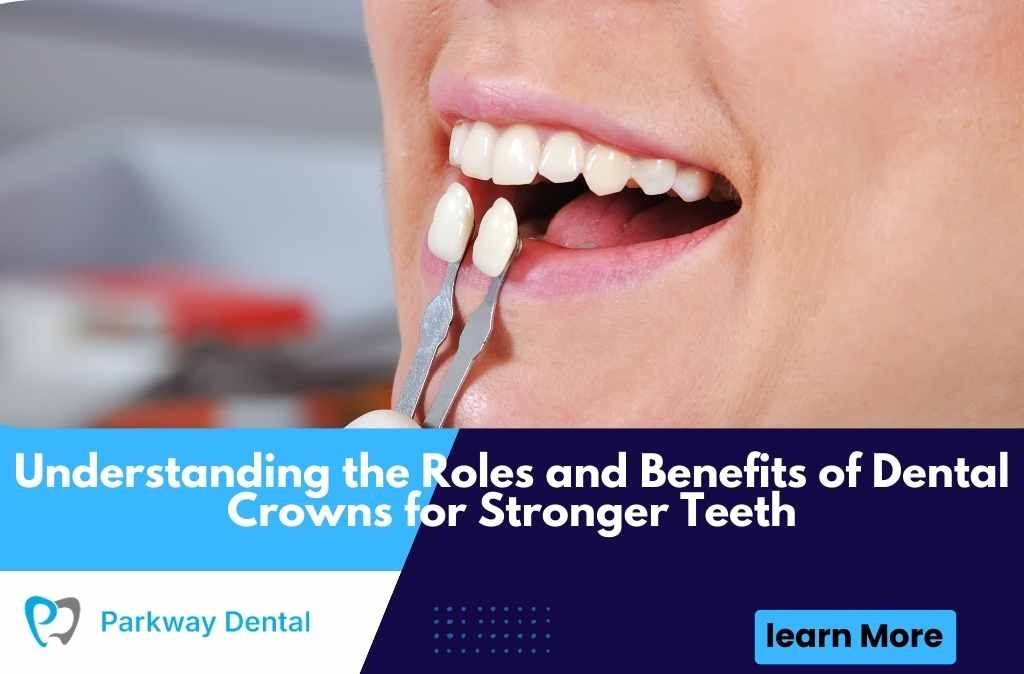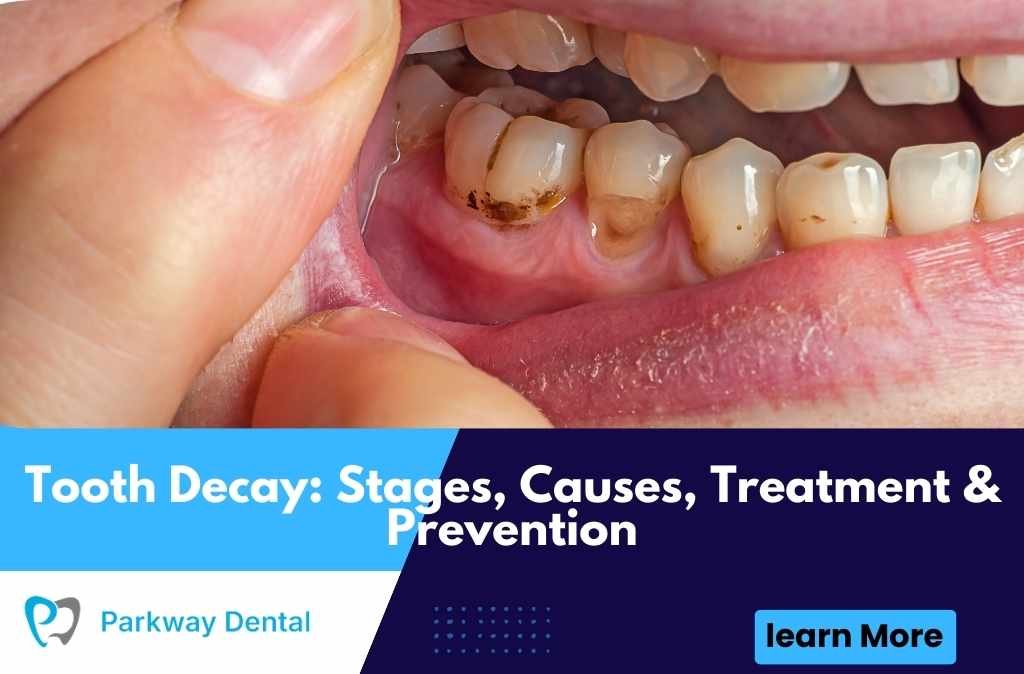Dental crowns are a key solution in modern dentistry, particularly for patients dealing with severely damaged or compromised teeth. Whether due to decay, trauma, or other dental conditions, crowns can restore both the function and appearance of teeth, allowing patients to maintain a healthy, confident smile. We will explore how dental crowns work, the types of crowns available, the benefits of choosing crowns over other alternatives, and why they are a reliable solution for saving severely damaged teeth.
What Are Dental Crowns?
A dental crown is a cap-like restoration that encases a damaged or weakened tooth. Crowns are custom-designed to match the shape, size, and color of your natural teeth, ensuring a comfortable fit and a seamless aesthetic. They are typically made from durable materials such as porcelain, metal alloys, or a combination of both.
Crowns are commonly used in situations where a tooth is too damaged to be restored with a filling or other conservative treatment. When a tooth has a large cavity, crack, or fracture, a dental crown can protect it from further damage while providing the necessary strength for everyday chewing.
Why Do You Need a Dental Crown?
Severely damaged teeth, if left untreated, can lead to a range of oral health issues. The teeth may become more susceptible to further decay, infections, or even tooth loss. A dental crown is often recommended to prevent these problems and save a tooth that might otherwise need to be extracted.
Some common reasons why a dental crown may be needed include:
- Severe tooth decay: When a cavity is too large for a filling to restore.
- Cracked or fractured teeth: Trauma from accidents or biting hard foods can cause cracks in the enamel.
- Root canal therapy: After a root canal, a crown helps seal the tooth and restore its function.
- Cosmetic concerns: Crowns can be used to improve the appearance of a discolored or misshapen tooth.
- Wear and tear: Over time, teeth can become worn down due to grinding or chewing, and crowns can restore their shape.
How Do Dental Crowns Work?
The process of getting a dental crown typically involves two visits to your dentist. Here’s a step-by-step breakdown of how crowns work:
Step 1: Initial Consultation and Assessment
During the first visit, your dentist will examine the damaged tooth and take X-rays to determine the extent of the damage. If the tooth is severely decayed or fractured, the dentist will discuss your treatment options, including the need for a crown.
Step 2: Tooth Preparation
To place a dental crown, the damaged tooth needs to be reshaped to accommodate the crown. This may involve removing a portion of the tooth’s enamel to ensure the crown fits properly. In some cases, if a significant portion of the tooth has been lost, a buildup of material may be required to create a stable foundation for the crown.
Step 3: Impressions and Temporary Crown
Once the tooth is prepared, your dentist will take an impression of the tooth using a special dental material or digital scanning technology. This impression will be sent to a dental lab, where the custom crown will be made. In the meantime, a temporary crown will be placed to protect the tooth until the permanent crown is ready.
Step 4: Crown Placement
When the permanent crown is ready, typically after about two weeks, you’ll return to your dentist’s office for the second visit. During this appointment, the temporary crown is removed, and the permanent crown is placed on the tooth. Your dentist will ensure that it fits perfectly and matches the color of your natural teeth. Once satisfied, the crown is bonded securely to the tooth.
Step 5: Aftercare and Maintenance
After the crown is placed, your dentist will provide you with instructions for maintaining your crown. Regular brushing, flossing, and dental check-ups are essential to ensure the longevity of your crown and overall oral health.
Types of Dental Crowns
Dental crowns come in a variety of materials, each offering different benefits. The choice of material depends on the location of the tooth, the extent of damage, and the patient’s aesthetic preferences. Some common types of crowns include:
Porcelain Crowns
Porcelain crowns are known for their natural appearance and are often used for front teeth. These crowns can be color-matched to the shade of your existing teeth, making them virtually indistinguishable from natural enamel. They are durable but may not be as strong as metal crowns, which makes them more suitable for areas that don’t endure heavy chewing pressure.
Metal Crowns
Metal crowns are made from durable alloys, including gold or other metal combinations. They are extremely strong and long-lasting, making them ideal for molars or back teeth that experience significant pressure from chewing. While they are highly durable, metal crowns are less aesthetically pleasing and are typically used in areas that are less visible.
Porcelain-Fused-to-Metal Crowns
Porcelain-fused-to-metal crowns combine the strength of metal with the aesthetic appeal of porcelain. These crowns are typically used for teeth that need both durability and a natural appearance. The metal base provides strength, while the porcelain covering offers a more lifelike look.
Zirconia Crowns
Zirconia is a highly durable and biocompatible material that is often used for crowns. It is known for its strength and natural appearance, making it a popular choice for both front and back teeth. Zirconia crowns are also less likely to cause allergic reactions, making them a good option for patients with sensitive teeth or gums.
Benefits of Dental Crowns
Dental crowns offer numerous benefits, making them an essential tool in restoring severely damaged teeth. Some of the key benefits of dental crowns include:
Protection of Weakened Teeth
Crowns act as a protective barrier for teeth that are severely decayed or damaged. They prevent further deterioration and shield the tooth from bacterial infection, which can lead to more serious issues such as abscesses.
Improved Functionality
By restoring the structure and strength of a damaged tooth, dental crowns allow patients to chew, bite, and speak with confidence again. The restored tooth functions similarly to a natural tooth, providing the necessary strength for everyday tasks.
Enhanced Aesthetics
Porcelain and zirconia crowns can be color-matched to your natural teeth, providing a seamless aesthetic result. Crowns can be used to improve the appearance of discolored or misshapen teeth, giving you a smile that feels natural and looks beautiful.
Durability
Crowns are designed to last for many years, providing a long-lasting solution for damaged teeth. With proper care and maintenance, crowns can endure the rigors of daily use and remain intact for up to 15 years or more.
Prevention of Tooth Loss
By strengthening and restoring a severely damaged tooth, crowns can prevent the need for tooth extraction. Preserving natural teeth is always preferable, as it helps maintain oral health and minimizes the need for more extensive dental work in the future.
When Is a Dental Crown the Right Choice?
While dental crowns are highly effective in many situations, they may not always be the best solution for every patient. Your dentist will assess the condition of your tooth and recommend the best treatment plan based on your specific needs.
Crowns are typically recommended in cases of:
- Severe decay or cavities
- Cracked or fractured teeth
- Teeth that have undergone root canal therapy
- Teeth with large fillings that need extra support
- Cosmetic improvement for misshapen or discolored teeth
In some cases, alternative treatments like dental bonding or veneers may be more appropriate, depending on the extent of damage and your desired outcome.
Learn More: Dental Crowns in West Roxbury, MA
Why Choose Dental Crowns?
Dental crowns are a highly effective way to restore the function and appearance of damaged teeth. They offer long-lasting durability, enhanced aesthetics, and protection for your natural teeth. Whether you need to repair a decayed molar or improve the appearance of a front tooth, crowns are a reliable solution that can help you achieve optimal oral health and a beautiful smile.
Cost-Effective
While dental crowns can be an investment, they are a cost-effective solution in the long run. The durability and longevity of crowns mean fewer dental repairs and treatments over time, saving you money on more extensive procedures.
Convenient and Fast
The process of getting a dental crown is relatively quick and straightforward. Most patients can complete the procedure in two visits, with minimal discomfort. The immediate benefits of restoring the tooth’s function and appearance are often worth the short treatment time.
Conclusion
Dental crowns are a transformative solution for patients with severely damaged teeth. Whether due to decay, trauma, or other factors, crowns can protect and restore a compromised tooth, allowing it to function properly and blend seamlessly with your natural smile. If you are looking for high-quality dental care and need to explore options like dental crowns, Dental Crowns in West Roxbury can help. Your dentist will work with you to find the most effective treatment plan tailored to your needs. For more information on how dental crowns can save severely damaged teeth, visit Parkway Dental, Dentist in West Roxbury, MA.




